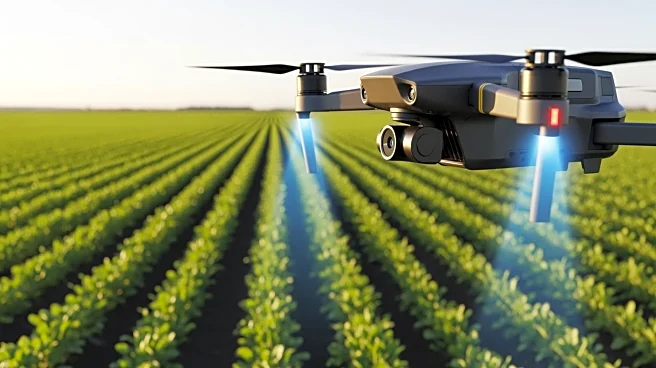What's Happening?
Kansas farmers are facing significant challenges despite a record milo crop this year. The Pawnee County Co-Op in Larned is selling last year's grain sorghum, known as milo, which is impacting sales for the upcoming crop. Kim Barnes, the co-op's CFO, highlights the difficulties in finding buyers due to reduced federal programs and international trade disruptions. The Trump administration's cut to the U.S. Agency for International Development program has eliminated a key market for Kansas grains. Current prices for wheat, milo, corn, and soybeans are significantly lower compared to previous years, creating financial strain for farmers. The Kansas Grain Sorghum Producers Association notes that while the crop is expected to be tremendous, the loss of the Chinese market, which typically accounts for 90% of milo exports, poses a major challenge. Efforts are underway to explore new markets in Mexico and India, and domestically, the FDA is studying milo for human consumption.
Why It's Important?
The situation is critical for Kansas farmers as low commodity prices and disappearing markets threaten their profitability. The loss of the Chinese market for milo exports is particularly concerning, given its historical significance. This disruption in trade flows, exacerbated by tariffs and global trade shifts, could alter the U.S.'s role in international agriculture. The economic impact extends beyond farms, affecting local businesses and communities reliant on agricultural income. As farm income drops, local spending decreases, jeopardizing the economic stability of rural areas. The need for new markets is urgent to sustain the agricultural sector and prevent further economic decline.
What's Next?
Kansas farmers are actively seeking new markets to offset the loss of Chinese demand. Efforts include exploring potential sales in Mexico and India, and increasing domestic use of milo. The FDA's study on milo for human consumption could open new avenues for domestic sales. Farmers are also engaging in marketing efforts, attending commodity conferences and forums to connect with international buyers. The evolving global trade landscape, influenced by tariffs and technological advancements in other regions, will continue to shape the future of U.S. agriculture. Farmers must adapt to these changes to maintain their competitive edge.
Beyond the Headlines
The broader implications of this situation highlight the vulnerability of U.S. agriculture to international trade policies and market dynamics. The shift away from traditional export markets underscores the need for diversification and innovation in agricultural practices. Ethical considerations arise as farmers navigate the complexities of global trade, balancing economic survival with sustainable practices. The potential for milo to be used in human consumption represents a cultural shift in dietary habits and food production. Long-term, these developments could redefine the agricultural landscape, influencing policy decisions and economic strategies.








